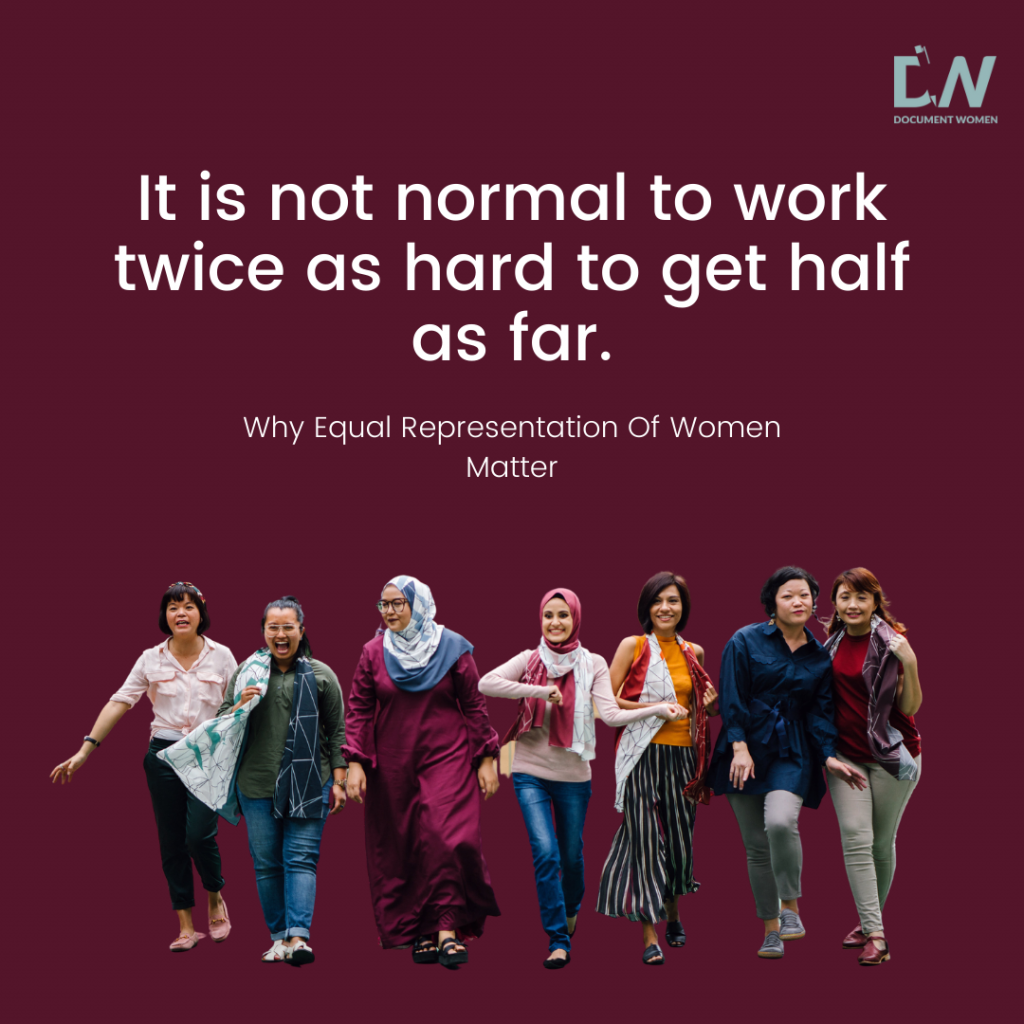Share This Article
Historically, women have had to fight for the rights freely given to men. For black women, this struggle is double. The fight for equitable representation is at the crux of the feminist movement and, women have and continue to fight for the right to inclusion in numerous spheres of life daily.

The exclusion of women, primarily black women, is pervasive in the media, government, corporations and nearly every facet of life. Even traditionally assigned female roles by the patriarchy like cooking do not have women at its forefront professionally. Of the 20 richest chefs in the world, only three are women. The first programmers in the 20th century were mostly women. Though they helped set the foundation for coding and its evolution, there is now a palpable underrepresentation of women in tech roles.
This representation deficit is a global problem and, though in some cases and facets of life, women are at the helm, it is not generally so. In Nigeria, the representation (or lack there-of) of women in politics reached rock bottom during the 2015 elections. For the first time since 1999, the percentage of women elected into office in various positions dropped. Only 4.17% of the elected officials in Nigeria are women.
There is a long way to go before parity in political representation can be achieved and, only deliberate affirmative action can close the representation gap. Nigeria’s population is almost equitably divided, with a mere difference of 1.2% between its male and female population, the male population being only minutely larger. Yet, in terms of involvement in politics, there is a 91.6% gap.
Gender roles are a contributor to the lack of representation of women in many aspects of life. First, women were denied access to education while their male counterparts were in school. Education for many of our grandmothers was purely utilitarian in that it centred around domesticity and family building. This was one of the many practices that served to relegate women to secondary roles.
Numerous stereotypical beliefs also bar women from participation in some industries. In the absence of these erroneous beliefs, (or compounding them), misogynistic rules and behaviour deter women from even trying. Those who do try, often encounter unfair treatment. Women are often treated as a liability in the workplace because of the mere possibility that they could become pregnant.
In an argument, a man told me that the fact that women need time off after childbirth means they are less effective workers than their male counterparts. Utterly ridiculous. If men pitched in equally in domestic affairs, women would have free rein to explore their professional goals.
The unfortunate fact that women are expected to cater to a family while working full-time jobs, limits the participation and representation of women in some fields even further. Women are expected to take on the bulk of domestic labour “simply because” and this is a disadvantage to women compared to their male counterparts who are held to less rigid standards regarding home administration.
The quest for gender parity is an uphill battle because many men refuse to acknowledge that women are discriminated against, underpaid and underrepresented and not for lack of ability. Women should not have to be exceptional to participate in activities even the most mediocre men have free access to. No, it is not normal to work twice as hard to get half as far.
SDG 5 focuses on gender equality and the empowerment of women and girls. It seeks to proffer lasting solutions to the gap the patriarchy has wrought. Due to the extent of the problem, organisations and governments need to actively make it their mandate to further inclusion, establishing quota systems if necessary. Women have been forced to take the back seat for too long.


2 Comments